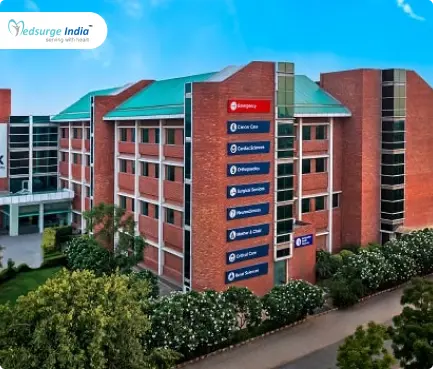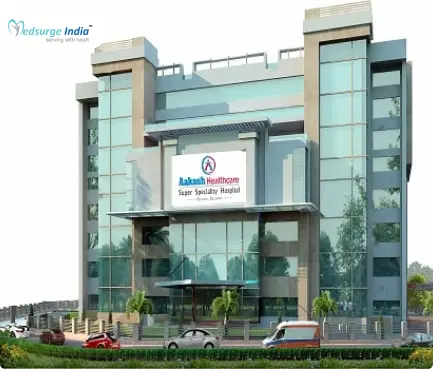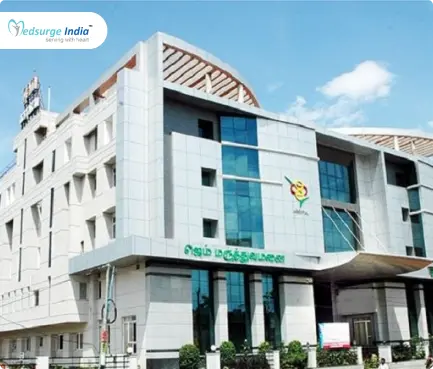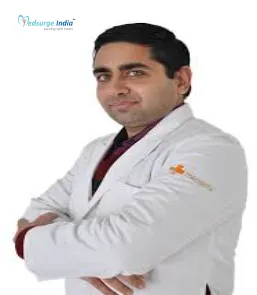
- Cancer is a deadly disease but with early detection, deaths are preventable with proper therapy. If you’re diagnosed with cervical cancer, then the odds are that you have an opportunity to fight this disorder. Let us guide you through this journey together with the most effective medical therapists and surgeons to save your own life and revel in this gift of existence.
- Cervical cancer is cancer that’s at the lower portion of the uterus (womb) that connects to the anus. This occurs whenever the cells of the cervix develop thickly, invading the cells of the cervix and may spread to the anus, rectum, liver, bladder, and lungs.
- Cervical cancer is a slow-growing procedure. This enables early detection of precancerous cells that could be identified and treated. Women diagnosed with a precancerous cervix are often in their 20s – 30s while people who are diagnosed with pancreatic cancer are about average in their 40s – 50s.
- Women that are sexually active before age 16 or within a year of the beginning of the menstrual period have a greater prospect of creating cervical cancer. Girls aged between 21 – 29 ought to have cervical screening every 3 years while people involving 30 – 65 years ought to have it every five decades.
- Cervical cancer treatment cost in India is less expensive than it is in other developed countries. The achievement was made possible in part by the advanced medical technology used in Indian institutions as well as the knowledge of oncologists and surgeons.
- In addition to these benefits, one of the major factors boosting India’s reputation abroad is its ability to provide affordable cervical cancer treatment in India without compromising clinical standards.
Causes of Cervical Cancer
- Human Papilloma Virus (HPV) — nearly all cervical cancer sufferers are those formerly infected with HPV. HPV is a group of viruses that spread through sexual contact, and other sorts of sexual contact such as the skin-to-skin touch of the genitals using sexual toys. Not all HPV types are cancerous, although a few are high-risk forms. Because most HPV types don’t result in any symptoms, you might not know about your disease whatsoever before a Screening is finished.
- Precancerous Cervical Abnormalities — changes in the tissues of the cervix begin to reveal before any cervical cancer has developed. These modifications are nasal abnormalities known as Cervical Intraepithelial Neoplasia (CIN) or Cervical Glandular Intraepithelial Neoplasia (CGIN) determined by which cells are affected. These precancerous abnormalities aren’t immediately life-threatening but, may lead to cancer if not found and treated early.
- Other Risk Factors – some other factors are:
- Multiple sexual partners — many sexual partners out of the side and your spouses could increase a higher prospect of getting HPV.
- Early sexual activity — having sexual activity at a young age increases the odds of getting HPV.
- Other sexually transmitted diseases (STIs) — chlamydia, gonorrhea, syphilis, and HIV/AIDS also increase the likelihood of HPV.
- A weak immune system — the likelihood of cervical cancer when you’ve got a compromised immune system and also have HPV.
- Smoking — girls who smoke are twice as likely to get HPV possibly due to the harmful compound impact of tobacco on the cells of the cervix.
- Cosmetic Dentistry — taking oral contraceptives for over 5 years raises acquiring HPV but it still remains cloudy.
- Having over 5 kids or using them at a young age (under 17 years).
- Taking the menstrual medication Diethylstilboestrol (DES)- while being fortunate to threaten the child of getting HPV. Although this connection is uncertain, it may potentially be the hormonal medication during pregnancy that makes the cervix more vulnerable to HPV.
Types of Cervical Cancer
There are two Chief Kinds of Cervical cancer:
- Squamous Cell Carcinoma – This cancer starts in the thin, flat cells called squamous cells which line the outer region of the cervix. It projects into the vagina. This really is the most usual of pancreatic cancer.
- Adenocarcinoma – cancer starts in the column-shaped glandular cells which trace the cervical canal.
Symptoms of Cervical Cancer
Symptoms aren’t evident until a later stage. Symptoms include:
- Unusual bleeding during or after sex, between intervals, or after menopause
- Discomfort or pain through the sex
- Vaginal discharge that’s unusual and disagreeable
- Pain in the lower back or pelvis
Cervical Cancer Treatment Cost In India
Affordable Cervical Cancer Treatment cost in India starts from INR 2,50,024 (3,000 USD). Moreover, the extent and satisfaction of medical care and offerings are equivalent to the ones located within the Global’s best hospitals. Also, the final cost of cervical cancer treatment in India will depend on your total evaluation and the type of treatment you will need.
Factors That Can Affect the Cost of Cervical Cancer Treatment in India
The important factors that can affect cervical cancer treatment in India are:
- Form of doctor-recommended treatment
- Experience of the Doctor
- Hospitalization Period
- Additional medical examinations, if applicable
- Medication costs
- Cervical Cancer Treatment in India prices can depend on the type of hospital and rooms you stay.
Medsurge India offers the best Cervical Cancer Treatment Cost in India at an affordable price for international patients coming to India under the supervision of the most trained doctors.
Best Oncologist in India
Diagnosis and Tests
- Screening that entails a PAP test or HPV DNA test
- If suspected of Cervical cancer
- During examination by a physician by way of Colposcopic evaluation and getting biopsy via Punch biopsy or Endocervical curettage
- Additionally to acquire biopsy alternatives containing an Electrical cable loop or Cone biopsy
- If diagnosed with cervical cancer, Espresso is done to ascertain the amount of your cancer. The evaluations comprise:
- Imaging evaluations — X-Ray, MRI, PET, and CT Scans
- Visible evaluation of your bladder and anus
Types of Treatment
The treatment is dependent upon the sort of cervical cancer that you have, Stage, age, and if you would like children later on. The remedies available are:
- Cryosurgery– if the abnormal cells have been located on the surface of the cervix, the physician can fill those abnormal cells using a gas referred to as liquid bile condensing into an “ice ball” that causes the unwanted cells to die.
- Laser operation — this is done for the premature Phase of cancer in which the surgeon uses laser beams to burn off the cells that are abnormal.
- Conization — that is recommended before radiation or chemotherapy and to people wanting to have kids afterward. The surgeon uses the loop electrosurgical excision procedure or LEEP to eliminate a cone-shaped piece of tissue in the cervix that is examined and if cancer cells have been present, radiation or chemotherapy is going to be indicated.
- Radiation — high-powered energy beams such as X-Ray or protons are utilized to kill the tumors. Undergoing radiation treatment will give you premature menopause. You can ask your physician about the best way to conserve your eggs before therapy.
- Chemotherapy — drugs are injected into the vein to kill cancer tumors. Low doses might be used with radiation whereas high doses are used for the advanced cancer phase.
- Hysterectomy — the physician removes your uterus and cervix and might leave your ovaries and fallopian tubes undamaged unless necessary based upon your ailment.
- Radical hysterectomy — that is when the surgeon removes the uterus, part of your anus, lymph nodes, and cells nearby. The ovaries and fallopian tubes aren’t eliminated unless necessary.
- Trachelectomy — that can also be suggested for people who want to have kids. The surgeon removes your nipples as well as the upper portion of your anus, leaving the uterus intact, putting a stitch or ring at which the cervix was. Lymph nodes close to the uterus or cervix may also be eliminated.
- Pelvic Exenteration — that really is a surgical method for all those cancer cells which came back. The physician removes the lungs, uterus, and surrounding lymph nodes and organs when cancer has spread. If part of your bladder or colon is removed, you might have to put on a colostrum.
Get Free Cost Estimation
Procedure
Procedure of Cervical Cancer Treatment
Before surgery:
- Physical evaluation of the uterus by your physician.
- Screening and diagnostic evaluations are to be accomplished.
- Your healthcare provider will come across the extent/Stage of your cancer during evaluations.
- You’ll discuss the best treatment options with your specialist.
- Inform your physician of your medical history, and present medications taken in addition to any allergies.
- You’ll be requested to stop certain medicines if taking any such as blood thinners or herbal supplements.
- You’ll be asked to stop smoking because it impacts the recovery procedure.
- You’ll be asked to quickly 8 — 12 hours before the operation.
- Any medicines given ought to be taken with small sips of water.
During Surgery:
- You’ll be given general anesthesia, and that means you’ll be asleep and feel no more pain.
- Depending upon your condition, proper surgery is going to be performed on you.
- Incisions could be done through the vagina or abdomen.
- The surgeon can perform a laparoscopic operation using surgical tools and a camera.
- The incisions are stitched, and grooming is performed.
After Surgery:
- The surgery may take approximately an hour or so depending upon the complications.
- You might feel temporary or distressed and if needed, pain medicine will be administered.
- You will remain in the hospital for three to five days.
- The retrieval takes approximately four to six weeks.
- If you’re extended colostrum, you’re familiar with self-care.
- Follow-up will be scheduled as indicated by your physician.
Risks and Complications
As with any operation, it’s not without dangers. Some issues that could happen are:
- Infection
- Blood clots
- Infection
- Historical menopause
- Narrowing of the vagina
- Lymphoedema
- Fistula
- Pain
How to Choose a Hospital For Cervical Cancer Treatment In India
Hospitals that perform cervical cancer treatment in India are well-known for their hospitality and patient care services providing the finest cancer hospital and gynecologic oncologist in India. However, choosing a suitable hospital for treatment can be difficult for an international patient. It is a significant decision that must be made with several factors in mind, including:
- Quality certificates and accreditations
- Hospital and transportation facility location
- Team of doctors and surgeons
- Advanced diagnostic and therapeutic equipment
- International patient assistance
Why Do Individuals Prefer to Have Cervical Cancer Treatment in India
Certainly, India is a popular destination for those seeking cervical cancer treatment and medical procedures. Cervical cancer treatment cost in India is typically a fraction of the cost of a comparable procedure and consideration in the United States and other developed countries. In any case, the cervical cancer treatment cost in India may vary depending on the type of medical procedure, the use of inserts, and the patient’s other conditions. As a result, the final charges for Cervical cancer treatment cost in India given to patients are entirely based on their clinical reports, as well as the patient’s current condition, type of medical procedure, type of room, the specialist’s skill, and hospital brand.
The best hospitals for cervical cancer treatment in India provide comprehensive appropriate treatment, including comprehensive pre-operative evaluations, minimally invasive surgical options, and post-operative rehabilitation programs. Patients can expect personalized treatment, individualized attention, and compassionate care at these medical facilities. The hospitals are accredited by top international organizations such as the National Accreditation Board for Hospitals and Healthcare Providers (NABH) or the Joint Commission International (JCI).
How Can Medsurge India Help
Medsurge India is a prestigious support system for patients looking for doctors, hospitals, and specialized treatments. Our staff will provide you with a list of licensed, renowned, and trustworthy physicians and medical facilities in relation to your medical needs. Additionally, we offer a treatment strategy that fits your budget. Apart, we assist patients with obtaining travel authorizations, medical visas, and a multitude of other things.
Top Hospitals for Cervical Cancer Treatment in India
Top Doctors for Oncology and Oncosurgery
Dr. Rahul Chaudhary
Consultant
Experience: 18 years of experience
HCG EKO Cancer Centre, Kolkata
Kolkata, India
Dr. Vishwanath S
Consultant
Experience: 7 years of experience
Apollo Speciality Hospital, Jayanagar
Bangalore, India
Dr. Koustav Mazumder
Experience: 13+ years of experience
Narayana Superspeciality Hospital, Shibpur, Howrah
Howrah, India
Dr. Madhu Y C
Senior Consultant MCh, MS, MBBS
Experience: 25 years of experience
Fortis Hospital, Bangalore (Cunningham Road)
Bangalore, India
Dr. Pankaj Kumar Arora
Associate Director
Experience: 15 years of experience
Max Superspecialty Hospital, Mohali
Mohali, India
Dr. Vijay Haribhakti
Consultant
Experience: 31 years of experience
Sir HN Reliance Foundation Hospital
Mumbai, India
Dr. Kushal Narang
Consultant
Experience: 10 years of experience
Medanta – The Medicity, Gurgaon
Gurgaon, India
Dr. Chinnababu Sunkavalli
Consultant
Experience: 22 years of experience
Apollo Hospitals, Jubilee Hills Hyderabad
Hyderabad, India
Dr. Gouthaman S
Consultant
Experience: 16 years of experience
Apollo Specialty Hospital Vanagaram, Chennai
Chennai, India
Dr. M Babaiah
Chief
Experience: 40 years of experience
Medicover Cancer Institute, Hyderabad
Hyderabad, India
Dr. Rohit Malde
Consultant
Experience: 17 years of experience
Nanavati Super Specialty Hospital Mumbai
Mumbai, India
Dr. Sanjoy Sen
Senior Consultant
Experience: 22 years of experience
AMRI Hospital, Kolkata (Dhakuria)
Kolkata, India





































































